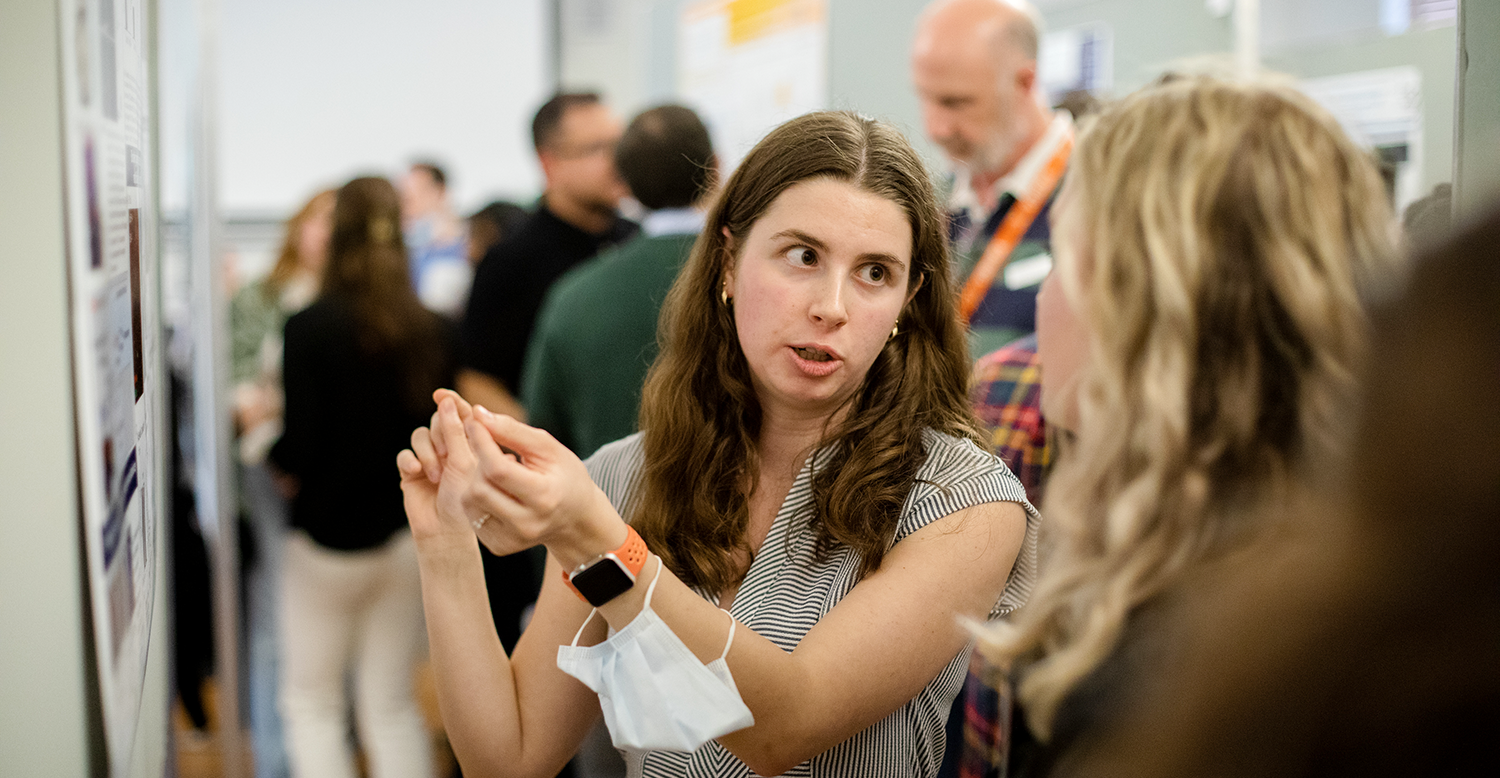What is BIMS?

We Invite You to Apply!
We seek students who are looking for a rigorous, innovative PhD training program; students who want to be a part of cutting-edge biomedical research in a rich scientific community; and students who aspire to become leaders in academia, industry, government, and science education.
Biomedical Sciences Graduate Program (BIMS) at UVA is a vibrant interdisciplinary graduate program committed to training PhD candidates in becoming the next generation of scientific leaders. We achieve this goal through an immersive curriculum designed to provide students with fundamental scientific skills and exceptional research training.
The BIMS program provides students with the flexibility to tailor an independent program of didactic coursework toward their developing research interests. In parallel, we offer students a broad spectrum of research opportunities, provided in partnership with the School of Medicine, Graduate School of Arts and Sciences, and School of Engineering and Applied Sciences at the University of Virginia.
Through these opportunities, BIMS students have an opportunity to train under world-renowned scientists who are committed not only to scientific discovery, but also to mentoring and teaching.
We Invite You to Apply!
We seek students who are looking for a rigorous, innovative PhD training program; students who want to be a part of cutting-edge biomedical research in a rich scientific community; and students who aspire to become leaders in academia, industry, government, and science education.
The BIMS graduate program integrates four educational elements to providing rigorous training to students in the biomedical sciences:
Our students follow a curriculum that includes a combination of core classes and more specialized advanced topic electives. These courses are designed to inspire as well as to help students develop into creative and analytical scientific thinkers through intensive training in scientific principles, data analysis, experimental design, and problem-solving skills. Importantly, our curriculum affords students great flexibility to develop a program of study that fits their developing research interests.
Independent research is at the core of the BIMS graduate program. Students have the opportunity to select from hundreds of faculty mentors whose research programs span a diverse array of scientific disciplines . Again, flexibility is an integral part of our program; students generally rotate with 3 faculty members of their choosing prior to selecting a mentor/thesis lab. Collaboration amongst UVA researchers is the rule rather than the exception, providing our students with unique training opportunities that are not found elsewhere.
Research retreats, topical symposia and seminar series, student research days, colloquia, research-in-progress meetings, and multi-institutional regional conferences supplement the formal course work and research activities of our students. Through many of these activities, students learn about cutting edge research that is being performed throughout the world from leaders in the field. Our students are also encouraged to participate in community outreach opportunities, where they learn to communicate science to a broader public and act as role models to younger students in the community.
Students in the BIMS graduate program are provided numerous opportunities to gain exposure to clinical and translational aspects of disease. These include frequent interactions with our clinical faculty, who teach in our formal courses and routinely serve as co-mentors and members of student thesis advisory committees. Additionally, our students have the opportunity to attend organ-based “tumor boards” and infectious disease conferences that form part of the clinical enterprise of the School of Medicine. Finally, they can choose to rotate through clinical pathology laboratories to learn about diagnosis and monitoring of human disease.
